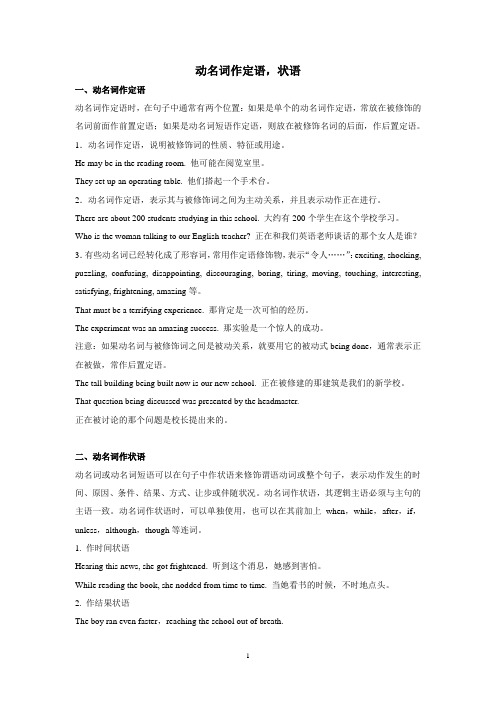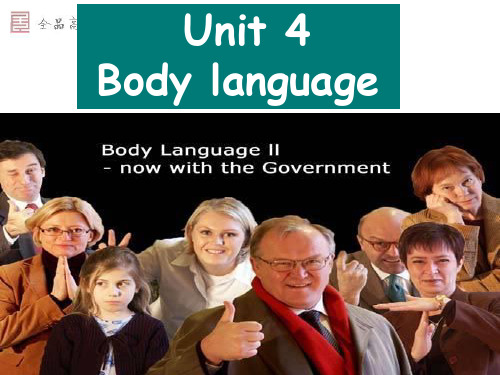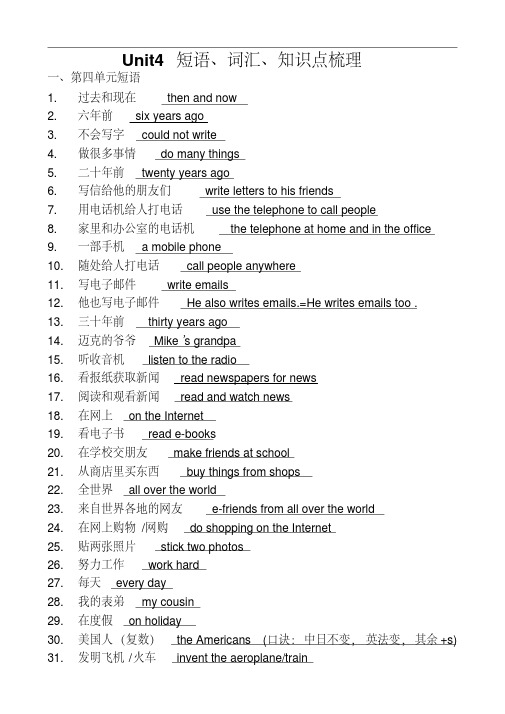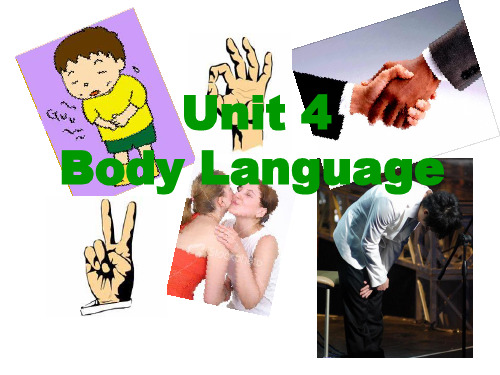Book4 Unit 4 基础知识复习
Unit 4【单元知识复习】八年级英语下册单元复习(牛津译林版)

④当名词同位语 例如∶ Tom had no idea which book to choose at the bookstore. The question whether to study abroad troubled the girl.
doing sth. different types of
books on weekdays
be interested in
the four great classical Chinese novels
7. 在我家对面 8. 给我许多书籍方面的建议 9.讨论读什么 10.帮助我在忙碌的一天后放
松 11.为我开启一个全新的世界
三、按照英语语法的习惯,疑问副词why 后不直接跟动词不定式 误∶I don't know why to choose that bag. 正∶ I don't know why you must choose that bag. 但它可以接不带to的动词不定式,即动词原形,构成why do sth./
(二)have to表示“必须”、“不得不”, 表示的是客观需要。
例如∶He has to stay at home for 3 or 4 days.
We will have to get up early tomorrow.
(三) must一般只有现在时,而have to有更多的形式。 例如∶I must go now. He must stay at home. His mother is ill, so he has to look after her. It was late. The girl had to go home.
新视野读写教程Book4-Unit4分析解析

the transmission of disease/virus 疾病/病毒的传
播
MENU
New Words in Section A
condense ① to reduce to a smaller or shorter form缩短,压缩 e.g.Should I manage to condense my letter of application into one page?
NHCE-BIV-Unit 4
I: Objectives
1. Familiarize the possible telecommunications tools!
MENU
NHCE-BIV-Unit 4
I: Objectives
2. Discuss with your partner and list as many high-tech products as possible!
Unit 4
Section A
The Telecommunications Revolution
What is communications?
• Telecommunications, from Greek, means “communications at a distance”. Telecommuni-cations through voice, data, and image communication is changing the world. The ease of accessing information and people of the world at anytime is having major impacts on society ,business, and finance.
Book4 Unit4--2

Book4 Unit4 检查学案1.对……感到好奇___________________ 极想做某事____________________ 出于好奇_________________ 满足某人的好奇心________________________ 好奇地_________________2. 把……描成……__________________ 自称是……____________________向某人说明某事____________________________3. 在……快到的时候_________________……的方法/通道_________________靠近,接近某事________________ …….快到了___________________4. 保护……免受伤害_________________为某人辩护______________________为了保卫_______________为……辩护;在……的防备下_________________ 5, 轻易地,毫不费力地__________ 感到/看上去心情放松____________________6. 总的说来___________________ 就整体上来看_____________________7. 接近___________________ 站得离……近_____________________严密监视______________________________与……有密切联系____________________________8. 做某事是可能的It’s likely that ……= _______________________________可能发生某种情况_____________________________________________(表示坚决不同意)决不可能,绝对不会_____________________________汉译英:1.他总是第一个来最后一个离开._____________________________________________________________________ 2.各种文化背景下人们互致问候的方式不尽相同,身体接触和相互间距离的程度也并不一样。
Book_4_Unit_4_Grammar_动名词作定语_状语

动名词作定语,状语一、动名词作定语动名词作定语时,在句子中通常有两个位置:如果是单个的动名词作定语,常放在被修饰的名词前面作前置定语;如果是动名词短语作定语,则放在被修饰名词的后面,作后置定语。
1.动名词作定语,说明被修饰词的性质、特征或用途。
He may be in the reading room. 他可能在阅览室里。
They set up an operating table. 他们搭起一个手术台。
2.动名词作定语,表示其与被修饰词之间为主动关系,并且表示动作正在进行。
There are about 200 students studying in this school. 大约有200个学生在这个学校学习。
Who is the woman talking to our English teacher? 正在和我们英语老师谈话的那个女人是谁?3.有些动名词已经转化成了形容词,常用作定语修饰物,表示“令人……”:exciting, shocking, puzzling, confusing, disappointing, discouraging, boring, tiring, moving, touching, interesting, satisfying, frightening, amazing等。
That must be a terrifying experience. 那肯定是一次可怕的经历。
The experiment was an amazing success. 那实验是一个惊人的成功。
注意:如果动名词与被修饰词之间是被动关系,就要用它的被动式being done,通常表示正在被做,常作后置定语。
The tall building being built now is our new school. 正在被修建的那建筑是我们的新学校。
That question being discussed was presented by the headmaster.正在被讨论的那个问题是校长提出来的。
unit4(book4)vocabulary

• 3. High levels of literate competence can be found in such____ fields of endeavor as science, law, or literature. • A. specific • B. specified • C. specialized • D. spectacular
• 20. With all experience abroad he was a major___ to the company. • A. asset • B. worker • C. manger • D. resource
• 8. We will___ you as soon as we have any further information. • A. relate • B. notify • C. communicate • D. make known
• 9. President Jiang Zemin’s visit to America helped the United States and China to have a better___ understanding. • A. habitual • B. mutual • C. relevant • D. equivalent
• 18. This new laser printer is___ with all leading software. • ቤተ መጻሕፍቲ ባይዱ. competitive • B. cooperative • C. compatible • D. comparable
• 19. The liaison at one end sent a telegraphic___ to the one at the other. • A. code • B. word • C. signal • D. language
Book4 Unit4课前延伸

Book4 Unit4 Body language编制人:曹永梅审稿人:高三英语组时间:2010-12-08教师寄语:Everything is good when new, but friends when old.I. Key words1.n.陈述;说明vt.陈述2.n.飞行;航班vi.&vt.飞;放飞( , )3.n.社团;联系vt.联系4.n.宿舍5.n.面颊6. n.成人7. n.功能;作用adj.功能的8.n.怒火adj.气愤的adv.愤怒地9.vt.代表n.代表(人)10. vt.&vi.靠近;接近n.方法;途径11.vi.误解n.误解vt.理解12. vt.保卫;保护n.防御13. vt.减轻n.安逸,舒适14. adj.好奇的adv.好奇地n.好奇15. adj.主要的n.多数16. adj.口语的adj.非口语的17. adj.主观的n.主语18. adj.可能的19. adj.而部的n.面部;脸vt.面对20. adv真实地adj.真的n.真理II. Key phrases1.保护……免受2.可能3. 丢脸4.背对;背弃5.舒适6.对……好奇7.不靠近8.当心9.总的来说10.接近11.介绍12.也;还13. 吻了她的脸14. 恰恰相反15. 误解III. Key sentences1. Not all cultures greet each other the same way,comfortable in the same way with touching or distance between people.各种文化背景下人们互致问候的方式不尽相同,身体接触和相互间距离的程度也并不一样。
2.However, people from places like Spain, ltaly or South American countries approach others closely and touch others.不过,来自西班牙、意大利和南美等国家的人会站在离别人很近的地方,而且可能会(用身体)接触对方。
人教版book4u4知识点(学生版)必修四 Unit 1 Women of achievement

B4U1 Women of achievement Language points核心单词1. achievement n.[C]成就;功绩;\[U\]实现;完成;达到联想拓展achieve v.取得,实现achieve an aim/a goal达到目标achieve success 获得成功He received the Nobel Prize for his scientific achievements. 他因科学上取得的成就而获得诺贝尔奖。
Flying across the Atlantic for the first time was a great achievement. 首次飞越大西洋是一个伟大的功绩。
高手过招完成句子①没有人民的支持,我们将一事无成。
Without the support of the people we can .②我只完成了我所希望完成的工作的一半。
I have achieved only half of I hope to do.③祝贺你获得这样完美的胜利。
Congratulations to you (介词) such a complete victory.2. behave vi.举止,行为,表现;(机器等)工作,运转(常与well/badly等副词连用)vt.守规矩;举止有礼常用结构:behave oneself 使某人自己举止规矩Behave yourself; don’t make a fool of yourself. 注意你的举止, 别闹出笑话来。
How is your new car behaving? 你的新车性能如何?联想拓展behaviour n. (人的)言行举止,行为;(动物)习性,自学成才behaviour towards/to... 对……的态度/行为高手过招(1)单项填空①David is quite well in school. He obeys the teachers and gets As in all his subjects. (2009山东潍坊检测)A. behavedB. concernedC. involvedD. respected(2)完成句子①父母让孩子们在客人面前举止礼貌。
七年级上册英语unit 4知识点

七年级上册英语unit 4知识点Unit 4是七年级上册英语的一个重要单元,主要围绕“Where's my backpack? ”这个话题展开,涉及到词汇、语法和口语表达等方面的知识点。
下面是本文对Unit 4的详细介绍。
一、词汇1. 名词:backpack(背包)、book(书)、pencil(铅笔)、pen(钢笔)、eraser(橡皮擦)、ruler(尺子)等;2. 形容词:old(旧的)、new(新的)、big(大的)、small (小的)等;3. 动词:have(拥有)、need(需要)、find(找到)、look for(寻找)、take(拿)、put(放)、give(给)等;4. 介词:in(在……之中)、on(在……上面)、under (在……下面)、behind(在……后面)、beside(在……旁边)等。
二、语法1. 一般现在时:主语+动词原形+其他。
例如:(1) I have a backpack.(2) She needs a book.(3) They look for the pencil.(4) He takes the eraser.2. 疑问句和肯定句的变换:将疑问句改为肯定句时,用Yes或No进行回答,动词要用助动词do或does。
例如:(1) Is your backpack new? → Yes, it is. 或 No, it isn't.(2) Do you have a pencil? → Yes, I do. 或 No, I don't.(3) Does she need a ruler? → Yes, she does. 或 No, she doesn't.3. 指示代词This和That的使用:This用于指离说话者近的人、物,That用于指离说话者远的人、物。
例如:(1) This is my backpack.(2) That is your book.(3) These pencils are new.(4) Those erasers are old.三、口语表达1. 问路:Excuse me, where is the library/cafeteria/bathroom?(打扰一下,请问图书馆/餐厅/洗手间在哪里?)2. 回答方向:Go straight/turn left/turn right/ go up the stairs/ go down the stairs/ it's on the second floor.(直走/向左拐/向右拐/往楼上走/往楼下走/它在二楼。
book4unit4warming up &reading

Answer questions
1.Why are the people visiting China? 2.Why is Julia Smith surprised? 3.What do French people often do when they meet people they know? 4.Why do you think we need to study body language?
gestures
OK
stop
silent
well done
Facial expressions
happy
angry
sad
confused
postures
She is feeling ill / having a stomachache.
He is thinking deeply.
eye contact
Ahmed Aziz
China
Columbia Britain Japan Canada Jordan France
Akira Nagata
Tony Garcia
George Cook
Julia Smith
Darlene Coulon
Fast reading
Divide the passage into four parts and match the main idea of each part.
Some body language is different in different countries.
What do people usually do when meeting? In China, Britain In Russia, France, In Arab, Japan, Korea In Some western countries Shake hands Kiss Bow hug
新课标人教版必修四Book4 Unit4 Vocabulary2

• • • • • • • • • • • • • • • • •
I. 重点词语识读 1.statement n.__________ 2. greet vi. & vt. ________ 3.represent vt. ________4. association n. ___ 5.dormitory n. _______6.canteen n.______ 7. flight n._________ 8.curious adj._____ curiously adv. ______ 9.approach vt. & vi. _______ n. ________ 10. cheek n. ______ 11. defend vt. _______ defence n. _______12. major adj. _____ 13.misunderstand vt. (misunderstood, misunderstood)_____ misunderstanding n.____14.dash vi._____15.adult n. _______adj. ____ 16.△simply adv. _______17.spoken adj. _______unspoken adj. ______ 18. posture n. _______19. Spain n. _______20.Italy n. ________ 21. likely adj. _______22. crossroads n.________23. employee n. ____ 24.frown vi. ______ 25.fist n_______26. yawn vi. _______ 27. respectful adj. ________28. subjective adj. ________ 29. hug vi. & vt._______30.rank n. _____31.cassette n._______ 32. defend …against_____33.be likely to _____34.in general ________ 35.lose face ________ 36. turn one ‘s back to _____
译林版六年级上册英语U4第四单元知识点梳理

Unit4 短语、词汇、知识点梳理一、第四单元短语1.过去和现在then and now2.六年前six years ago3.不会写字could not write4.做很多事情do many things5.二十年前twenty years ago6.写信给他的朋友们write letters to his friends7.用电话机给人打电话use the telephone to call people8.家里和办公室的电话机the telephone at home and in the office9.一部手机 a mobile phone10.随处给人打电话call people anywhere11.写电子邮件write emails12.他也写电子邮件He also writes emails.=He writes emails too .13.三十年前thirty years ago14.迈克的爷爷Mike’s grandpa15.听收音机listen to the radio16.看报纸获取新闻read newspapers for news17.阅读和观看新闻read and watch news18.在网上on the Internet19.看电子书read e-books20.在学校交朋友make friends at school21.从商店里买东西buy things from shops22.全世界all over the world23.来自世界各地的网友e-friends from all over the world24.在网上购物/网购do shopping on the Internet25.贴两张照片stick two photos26.努力工作work hard27.每天every day28.我的表弟my cousin29.在度假on holiday30.美国人(复数)the Americans (口诀:中日不变,英法变,其余+s)31.发明飞机/火车invent the aeroplane/train32.英国人the British/the Englishmen33.一节英语课an English lesson34.朝窗外看look out of the window35.听我说listen to me36.继续go on37.今天是星期几?What day is today?=What day is it today?38.你会拼写它吗?Can you spell it ?39.变得生气get angry40.用“鸡蛋”造一个句子make a sentence with ‘egg’41.吃一块蛋糕eat a cake42.“鸡蛋”在哪儿?Where’s the ‘egg’?43.等待答案wait for the answer44.复习一般过去时review the simple past tense.45.一岁one year old46.三岁three years old47.贴一张你自己的照片stick a photo of yourself48.比较过去时和现在时/抚今追昔compare the past with the present二、第四单元词汇1.过去和现在then and now2.,,以前ago3.使用use4.电话telephone5.办公室office6.移动电话,手机mobile phone7.随处,到处anywhere8.收音机radio9.报纸(可数名词) newspaper10.新闻(不可数名词) news11.观看watch12.电子书e-book13.交朋友make friends14.全世界all over the world15.购物do shopping16.电视TV17.朝,,外看look out of18.继续go on19.仍然still20.今天是星期几What day is today?21.拼写spell22.造句make a sentence23.用with24.昨天yesterday三、第四单元知识点梳理1、一般过去时情态动词的句型转换:(1)could引导的一般过去时的否定句,在could之后加not:could not=couldn’tSix years ago, I could write.(否定句)Six years ago, I couldn’t write.(2)could引导的一般过去时的一般问句,将could调至句首:Mike could read and draw.(一般问句)Could Mike read or draw?(3)could引导的特殊问句:特殊疑问句+could引导的一般问句:They could ride a bike.(对画线部分提问)Could they ride a bike(用do what替换) ?What could they do ?2、一般过去时和一般现在时的动词形式对比:时间决定时态根据句中时间副词的不同,使用不同的动词形式。
新课标人教版必修四Book4 Unit4 Reading

Ways to greet each other Approach others closely and are more likely to touch them. Shake hands, do not stand very close to others or touch strangers when they meet. Bow Shake hands. Shake hands and stand quite close to other men. Nod to women but do not shake hands with them.
我的课堂我做主
Assignment(任务分配)
Group1. → Question (3,4). Group2. → Question (5). Group3. → Question (1). Group4. → Question (2). Group5. → Question (6). Group6. → Question (7).
Japan: bow
Some western countries: hug
Russia, France, Arab: kiss
Reading
Communication:
No problem?
Learning aims
• 1、To learn some new words and phrases. • 2、To know different body languages represent different meanings. • 3、To respect other country’s body languages.
Why do we need to study body language?
初中英语_九年级一轮复习Unit4 Book4教学设计学情分析教材分析课后反思

九年级一轮复习Book 4 Unit4 Why don't you talk to your parents?【三维目标】1.知识与技能:1) Review words, phrases and language points.2) 掌握连词until, so that ,although的用法。
3) 能正确使用情态动词提出解决问题的意见和建议。
2.过程与方法:1) Task-based teaching approach.2) Autonomous learning and cooperative investigation(自主学习,合作探究).3.核心素养:遇到问题,学会沟通。
尤其是初中阶段青春期的学生,面临与父母的冲突,学会及时的沟通交流。
【复习重点、难点】1. 重点:重点词汇和重点句型。
2. 难点:让学生能够在实践中灵活运用本单元的单词,短语,句型。
掌握until, so that ,although的用法。
【教学过程】Step I. 话题回顾Pair work: talk about problems and advice.A: What’s wrong/what's the matter?B: I...What should I do?A: Why don't you...? You should...B: You’re right.Thanks for your advice.Step II. 基础梳理Task 1 Dictation1. usual (adj.通常的)→_____________(adv.)2. communicate (v.交流)→________________(n.)3. press (v.压)→_________(n.)4. type (n.类型) →_________(adj.)5. compete (v.竞争)→_______(adj.)→______(n.)竞争→________(n.)竞争者6. train (v.训练) →________(n.) →________(adj.)受过训练的7. worry (v.担心)→__________(adj.)8. activity (n.活动) →___________(pl.)9. second (序数词:二) →__________(adv.)第二10.develop(v.发展)→______________(n.)Task 2 聚焦考点1. She's _________ (worry) about her school grades.2. Jack has to go to baseball__________ (train) after school every day.3. Mother cooked breakfast for me as ______ (usually) although she's ill.4. Too much pressure is not good for a child's ___________ ( develop).5. In some families, __________ (compete) starts very young.6. Mr. Chen is a_______(type)good teacher. He teaches well.7. The teenagers have to work hard because of the______________(press)from their parents.8. My parents fight a lot. it's the only_______________(communicate )they have.9. There are many after-school____________(activity )now.Task 3 短语过关1.允许某人做____________2.和……打架__________________3.查看,浏览___________________4.解决_______________________5.和睦相处___________________6.拒绝做_____________________7.提供帮助____________________ 8.和……·交流__________________9.害怕做…_______________________ 10.和……比赛_____________________11.常见/共同问题___________________12.删除__________________cut off 切断cut up 切碎cut down 砍到13.与…比较______________ 14.独立思考_______________15.持续_____________ 16.依……看________________Task4. Complete the English sentences according to the Chinese.1.她的父母不允许她晚上独自外出。
人教版高中英语必修四 Book 4 Unit 4 Showing Our Feelings PPT课件

Task 1 complete the passage
Body language is used by people to _______ their thoughts and opinions and express to______________ communicate with each other. When you talk with others, you are not just using words, but also using facial expressions as well as ________. gestures Just like words, body language _______ varies from culture to culture.
to show no interest to the person
6. standing, holding your arms across your chest
to protect yourself from an unwanted conversation
similar body language
Unit 4 Showing Our Feelings
1. What is the main idea?
Body language has many universal gestures.
2.Does the smile always mean happiness?
A smile usually show happiness and put people at ease.
让步状语 从句, 此句是复合句。even if 引导_________ 其中主句 中it 作 形式主语 ________,真正的主语为 to “read”others around us 。 _____________________________ “__________________________________ 读懂”我们周围的人的意思是有可能的, 句意为: 即便是人们并不想让我们捕捉到他们没有说 _________________________________________ 出来的信息。 _______________________
2009高考一轮复习Book4Unit4(单元)复习(人教版)

unspoken (speak) hung in the air 6. Something __________ between them. facial (face) expression showed that she did 7. Her ________ not quite understand what was going on. 8. After a sic-day negotiation(谈判), the two sides finally came to an __________ agreement (agree). 9. I told him I’d meet him here, but perhaps he ______________ misunderstood (understand) and went straight to the pub. 10. He entered the room, ___________ closely (close) followed by the rest of the family.
必修四
一、单词拼写 根据词性和词义写出下列单词。 nod 1.__________ v. 点头 similar adj. 相似的 2.__________ avoid 3.__________ vt.避免;消除 gesture n& v.姿势; 做手势 4.__________ agreement n.一致;协议 5.__________ local 6.__________ adj. 地方的;当地的 chest 7.__________ n.胸膛 approach n.&vt.接近;方法 8.__________ general 9.___________ n.&adj.一般的; 普通;将军
2020高考英语新人教版一轮复习练习:Book 4 Unit 4

基础知识默写(学生用书261~262页) 1.statement n.陈述;说明state v t.陈述;说明2.represent v t.代表;象征representative n.代表adj.有代表性的;典型的3.curious adj.好奇的curiosity n.好奇4.approach v t.& v i.接近;靠近;走近n.接近;方法;途径5.cheek n.面颊6.defend v t.保护;保卫defence n.保卫;防御7.major adj.主要的majority n.大多数8.misunderstand v t.误解;误会misunderstanding n.误解;误会9.adult n.成人;成年人adj.成人的;成熟的10.spoken adj.口语的11.likely adj.可能的12.function n.作用;功能;职能v i.起作用;运转13.ease n.安逸;舒适v t.减轻(痛苦、忧虑)easy adj.容易的14.truly ad v.真实地;真诚地;真正地true adj.真的15.greet v t.& v i.迎接;问候;映入……的眼帘greeting n.问候;迎接16.association n.社团;联系;联想associate v t.联系;联想17.dormitory n.宿舍18.canteen n.食堂19.flight n.飞行;航班20.crossroads n.十字路口21.facial adj.面部的22.false adj.错误的;假的23.fist n.拳头24.yawn v.打呵欠25.hug v.拥抱26.rank n.等级;军衔27.subjective adj.主观的objective(反) adj.客观的28.cassette n.磁带29.put up 举起;升起;搭建;留宿30.on the contrary 相反31.in general总的来说;通常32.agree with同意33.defend...against/from防御;保卫……以免受34.at ease舒适;快活;自由自在35.lose face 丢脸36.turn one’s back to背对;背弃37.as well as和……一样好;而且;也;和38.The first person to arrive was Tony Garcia from Colombia,closely followed by Julia Smith from Britain.第一个到达的是从哥伦比亚来的托尼·加西亚,随后紧跟着的是英国的朱莉娅·史密斯。
人教版七年级上册英语Unit4知识点梳理及语法讲义(学生版)

七年级上册英语Unit 4知识点与语法精讲精练词汇梳理(一)完成单词梳理:名词:1. 桌子 2. 床 3. 书架;书柜4. 沙发5. 椅子6. 书桌7. 房间8. 帽子9. 头10. 收音机11. 时钟12. 磁带;录音带13. 播放机14. 模型15. 飞机动词:1. 来;来到 2. 认为;想;思考 3. 知道;了解代词:1. 他(她、它)们的 2. 我们的介词:1. 在……上 2. 在……下副词:1. 在哪里;到哪里 2. 处处;到处;各个地方3. 总是连词:1. 但是形容词:1. 整洁的;井井有条的感叹词:1. 是的;对(二) 词汇变形小结:1. they (人称代词主格:他/她/它们) — (人称代词宾格) — (形容词性物主代词:他/她/它们的) — (名词性物主代词:他/她/它们的)2. tidy (adj. 整洁的) — (反义词:不整洁的)3. radio (n. 收音机) — (复数)4. we(人称代词主格:我们) — (人称代词宾格) — (形容词性物主代词:我们的) — (名词性物主代词:我们的)【练一练】用所给词的适当形式填空1.Look! Those are four (bed) in my house.rry and I are Bill’s daughters, so Bill is(we) father.3.Those old CD( player) are very nice.4.Susan and Emma thank(they) teacher for helping them find the keys.5.Tina (e) to the gym and plays sports.6.These (room) are too small.7.Look! Your model plane (be) on the sofa.8.The Chinese book is (he).9.Look at my (mother) room. It’s very clean.10.These are (they) baseballs.(三) 短语攻关:快点儿磁带播放机飞机模型在沙发上在某人的书包里在某人的床下面在某人的头上讲桌铅笔盒电脑游戏知识点梳理1. Where are my books? 我的书在哪里?【用法详解】“Where+be动词+主语?”该句型为where引导的特殊疑问句,用来询问“某人或某物在哪里?”。
Unit4基础知识巩固(词汇、短语、句型)2021-2022学年人教版八年级英语上册

Unit 4 基础知识巩固(词汇、短语、句型)一、词汇复习巩固。
A)根据汉语意思或者首字母提示,用单词的适当形式填空。
1.My sister is a p_________girl, she has a beautiful face and long hair.2.The more c_________ you do your exercises, the fewer mistakes you will make.3.We usually have three ________ (餐;饭) every day.4.A movie t____ is a place where we can enjoy movies.5.Can you buy me a t ________ (票) from Wuhan to Shenzhen?6.All the ________ (获胜者) of the basketball match jumped with joy.7.I think the Modern City Restaurant has the best s____.8.Town Cinema has the most c______(舒适的) seats.9.He calls himself a TV r________(记者).10.Lucy win the first p________ of the game.11.Mr. Liu is handsome and ______(有创造力的).12.The__________(屏幕)of the computer is too bright. It’s bad for your eyes.13.My cousin g______ me this picture book yesterday.14.The little girl danced __________ (漂亮地). She got the prize.15.The air in the mountains is f____ and clean.16.Take your s_____, children! The movie is beginning.17.Our school is c_________ to the post office.18.Tina was ______(严重地) injured in the traffic accident.19.It's useful to learn English by listening to some English s_____.20.In ______(拥挤的) places like airports and railway stations, you must take care of your things.21.I think you are lucky to have got the house so c_____________. It’s only 100,000yuan.22.Generally speaking,excellent learners have some good habits in ________(相同).23.The duck is swimming ________(舒服地)in the river.24.However,if you don't take these shows too __________ (认真地),they are fun to watch.25.He can't buy that expensive piano because his family is very p______.26.I think we should be allowed to ______(选择) our own clothes.27.The theater in this town is the w________.28.That __________(魔术师)from America looks very young.29.There will be a __________(天赋)show in our school hall tomorrow afternoon.30.________ (行动) now, and you will do better in everything.B)词形变换。
Book4Unit4Bodylanguage词汇拓展

Book 4 Unit 4 Body language词汇拓展1.add V. 加,添加,增加He added the wood to the fire .他给火添了木柴。
This year we have added 1000 mu to our planted areas. 今年我们增加了1000亩种植面积。
[拓展] add to 增加,增进add up to 加起来总共addict n. 有瘾的人,对……有强烈兴趣的人addition n. 加,附加,增加物in addition 另外,加之in addition to 除……之外(还)additional adj. 附加的,另外的,外面的2. note n. ①笔记,注释,便条Please make a note of my new dress.请把我的新地址记下来。
②纸币I don’t have small notes on me . 我没带小额钞票。
③注意Take note of what he says . 注意他说话。
[拓展] compare notes 交流意见make a note (notes) of 记下take a note of 记下take note of 注意3. purpose n. ①目的,意图Did you come here for the purpose of seeing your friends, or for business purpose ?你来这里的目的是为了看望朋友还是人了公事。
②用途,效果,结果Don’t waste your money ,put it to some good purpose. 别浪费你的钱,将它用有好的用途上。
[拓展] for the purpose of 为了……的目的with the purpose of 目的是……achieve/accomplish a purpose 达到目的serve/answer one’s purpose 符合要求on purpose 愿意地4. major adj. 较大的,主要的The car needs major repairs . 这辆汽车需要大修。
- 1、下载文档前请自行甄别文档内容的完整性,平台不提供额外的编辑、内容补充、找答案等附加服务。
- 2、"仅部分预览"的文档,不可在线预览部分如存在完整性等问题,可反馈申请退款(可完整预览的文档不适用该条件!)。
- 3、如文档侵犯您的权益,请联系客服反馈,我们会尽快为您处理(人工客服工作时间:9:00-18:30)。
Book4 Unit 4 基础知识复习单项选择:1. If you are ______ about Brazil, you may read this book.A. curiousB. upsetC. strangeD. interested2. It is very ______ that she will ring me tonight.A. likelyB. possiblyC. probablyD. perhaps3. Your experiences are ______ to ours, but your end result is entirely different.A. sameB. differentC. similarD. equal4. As a student, you should try to ______ being late for your class.A. avoidB. refuseC. preventD. punish5. Though she has been in England for half a year, she is still unable to _____ insimple English.A. explain herselfB. express herselfC. speak her mindD. make herself understand6. —What do you mean by saying that?—I think you _______ what I said. I meant no harm.A. understoodB. misunderstoodC. heardD. followed7. —_______ for snakes while hiking in the woods.—I’ll dress appropriately to protect myself.A. Walk outB. Go outC. Set outD. Watch out8. At this time tomorrow, we _______ across the big desert ahead.A. are to driveB. are going to driveC. will be drivingD. will drive9. “It’s raining too heavily at this moment,” said the old woman, ________ out of thewindow.A. to lookB. lookingC. having lookedD. looked10. _______, a learned man makes fewer mistakes in life than a man withoutknowledge.A. In generalB. As generalC. On generalD. At general11. —I don’t like this kind of music.—_______. It’s too noisy.A. Nor do IB. Neither am IC. Nor I doD. Neither I am12. How _______ I was when I heard the _______ news!A. disappointing; disappointedB. disappointed; disappointingC. disappointing; disappointingD. disappointed; disappointed13. She is very hard-working, _____ he is very lazy.A. whenB. thatC. whichD. while14. Before graduation, we had got a lot of practical _____ by doing a part-time job inthe factory and it was really ______ for all of us.A. experiences; great experienceB. experience; great experienceC. experiences; a great experienceD. experience; a great experience15. They ______ the idea that children could learn to read as babies.A. thoughtB. introducedC. inventedD. discovered单词拼写:1. Yesterday, Minnie and I , (代表) our class, attended the meeting.2. The time is (靠近)when we must think about buying a new house.3. Force has been given to us to d our own individual rights.4. The a______ stayed up, but the kids went to bed.5. If I drink too much red wine, my ______ (面颊) go all red.6. He got a very serious ________ (面部的) injury in the fight yesterday.7. After listening the long boring lecture, he stood up, stretched, ________ (打哈欠) and left lazily.8. I’m c to know what has happened to him.9. A smile is intended to make people at e .10. The train is l to be late..语法填空:____1____ all cultures greet each other the same way. Each country may have its____2____ way to express feelings. In Britain, people may keep____3____ certain distance. In Japan, ____4____may bow to each other when they meet. In France, people shake hands and kiss each other twice 5 each cheek. And in South American countries, they ____6____ stand close and touch each other. 7 in Middle East Muslim countries, they shake hands only with men, not with women. In China today, people may shake hands with each other, sometimes they greet each other only_____8_____ a smile. Perhaps they will kiss or embrace _____9_____ the future 10 ( express ) their strong feelings.翻译:1.在这个班里并非每个学生都是来自中国。
2.很可能你已经被清华大学录取了。
(likely)3. 一个优秀的学生应该总是渴望学习。
(curious)4. 一般来说,他是能用英语口语表达思想的。
5. 当他从门口匆忙进来时,他认出了她的微笑的脸孔。
(dash)1-5 AACAB 6-10 BDCBA 11-15 ABDDB单词拼写:1. representing2. approaching3.defend4. adults5. cheeks6. facial7. yawned8. curious9. ease 10.likely语法填空:1.Not2.own3.a4.they5. on6.may7.But8.with9.in 10.to express1. Every student in our class is not from China.2. It’s likely that you have been admitted to Qing Hua University. /You’re likely to have been admitted to Qing Hua University.3. A good student should always be curious to learn.4. In general, he can express himself in spoken English.5. when he came dashing through the door, he recognized her smiling face.。
